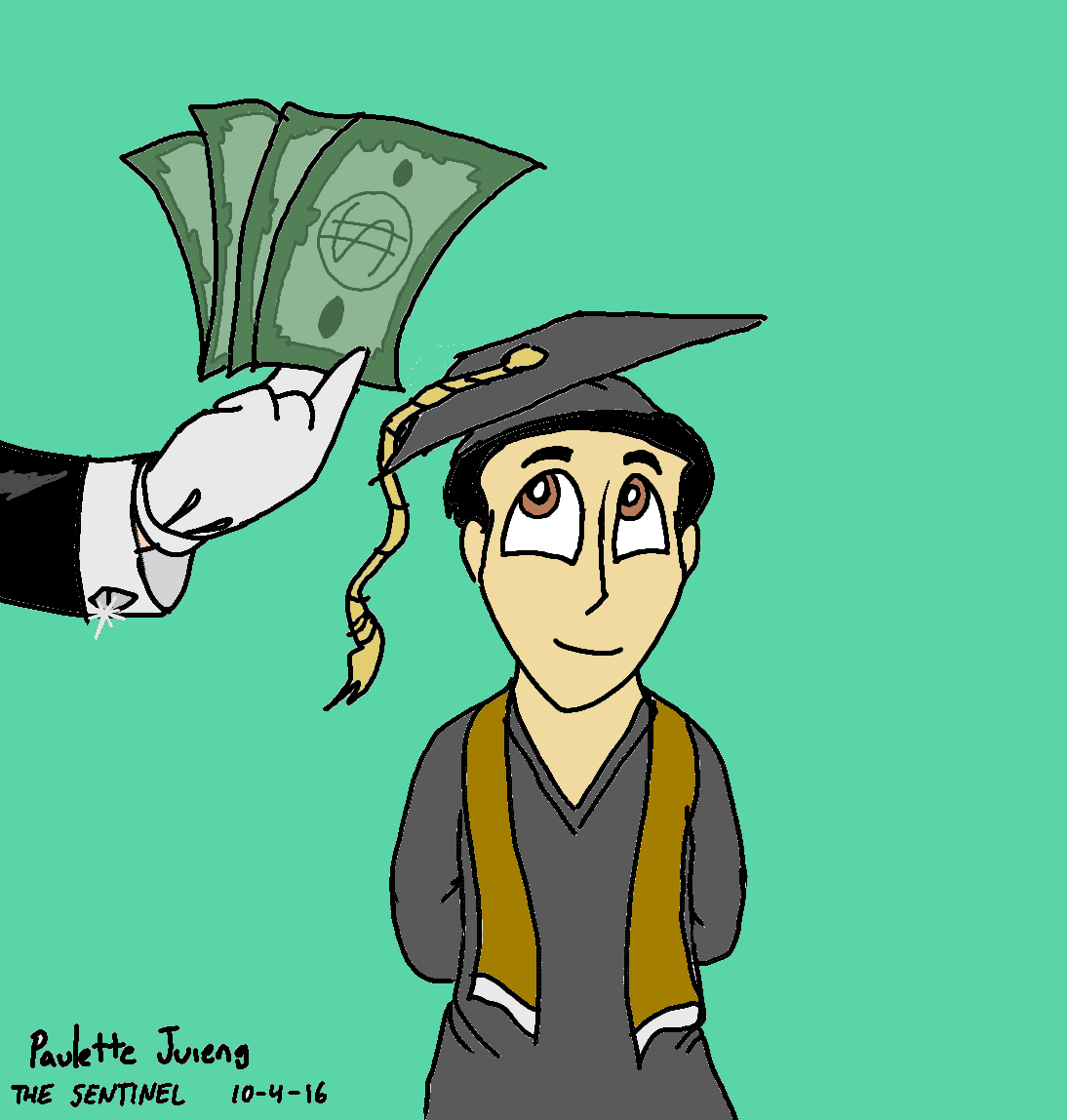Throughout the 2016 presidential race, many candidates have discussed the topics of college tuition and student debt.
According the National Center for Educational Statistics, the average cost of attending a four-year institution in the 2012-2013 academic year was $17,747. In a country where most decent-paying jobs are requiring applicants to have a college degree, skipping college can become a financial death sentence.
Spending upwards of $70,000 for a four-year degree, however, is also a financial death sentence for many students.
To ease this burden, students are able to get loans, grants and scholarships. Unfortunately, it would appear that most of these opportunities only benefit the middle class.
The average student making less than $30,000 a year received only $9,240 in Title IV aid for attending a public four-year institution in 2012, again according to the National Center for Educational Statistics. This is a disproportionately small aid, considering the price of a degree.
Obtaining a loan requires good credit, which some working class Americans don’t have. It appears that, unless those in poverty can get scholarships to cover the majority of $70,000, they can’t seem to afford a college education.
For those unable to afford an education, it is increasingly harder to find good employment, meaning they likely wont be able to afford to send their children to college. These conditions create an environment in which it is extremely hard for the working class to prosper.
Jill Stein, the 2016 presidential candidate for the Green party, believes that it is the duty of the government to make a higher education more accessible to those in poverty. Stein proposes to make colleges tuition-free and to also cancel existing student debt.
“We found a way to bail out Wall Street, the guys that crashed the economy with their waste, fraud and abuse,” Stein said in a CNN interview. “So my point is, as responsible adults, we need to bail out a younger generation [which] leads us forward to create the economy of the future.”
Stein’s plan includes imposing a speculation tax on the wealthiest members of Wall Street to finance free public college.
Critics may claim that imposing a tax to pay for the education of others is unfair, but I don’t believe that taxing billionaires who almost ruined the economy to pay for poor students’ education is unjust.
Stein also proposes that the Federal Reserve buy out existing student loan debt, which would allow students to spend that money and revitalize the economy.
“We bailed out Wall Street to the tune of $17 trillion when you include the no-interest loans and the straight-up bailouts they received,” Stein explained in an interview with socialistworker.org. “The good news is that student debt is tiny by comparison: only $1.3 trillion.”
Although Stein’s plan may seem idealist to some, I genuinely believe that free college can be a possibility for everyone. Education is not a privilege — it is a universal right. I believe that Stein’s plan will make that right accessible to every American.




Maybe the “FREE” college crowd should take a remedial course in Economics 101.